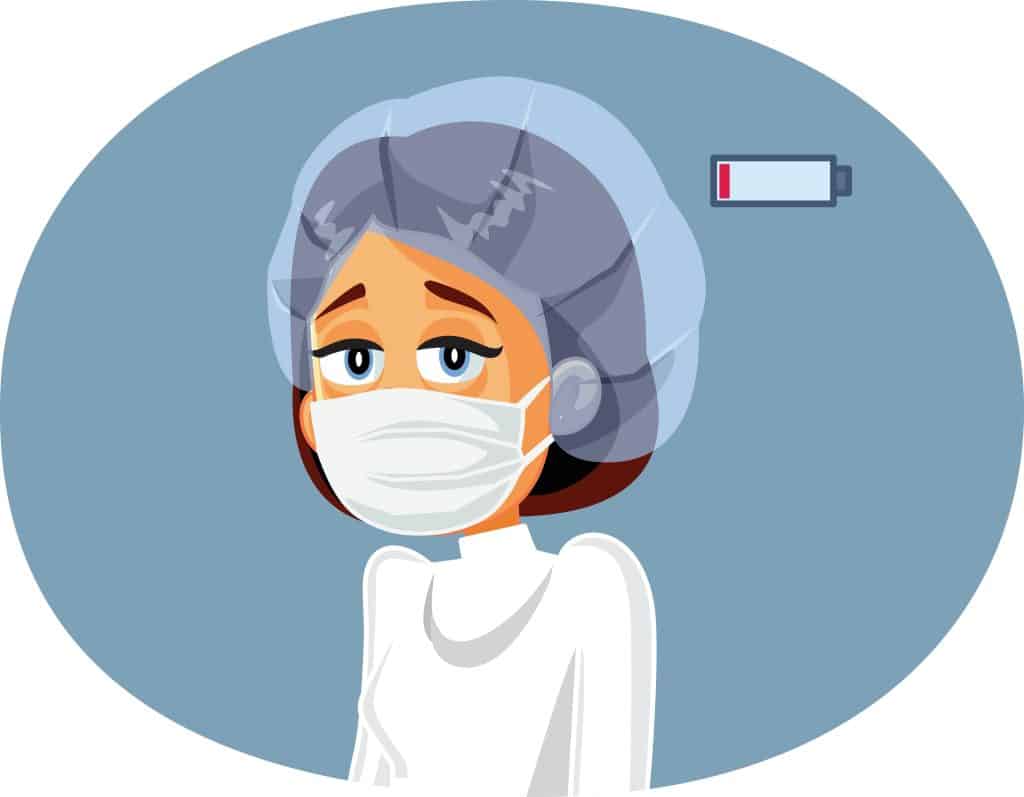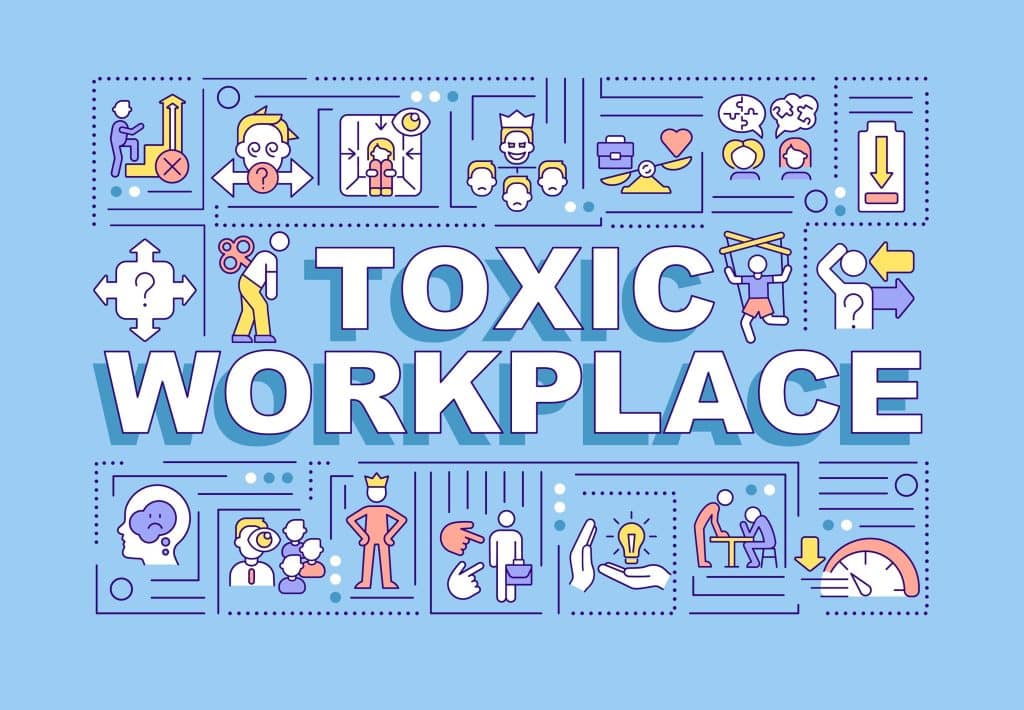We live in a stressed-out world. Sure, we have no way to directly compare our lives to those of our past counterparts, but its palpable in the hours we need to work to live, the money insecurity that so many suffer from, and the multiple jobs we’re forced to take on. The problem has grown to the point that studies now show us the increasing number of people having a problem with their day-to-day work existence. And this increased workplace depression, leads to the need for answers.
Workplace depression in the UK
As with any question that requires a pole or investigation of some kind, different answers tend to come out, showing slightly (and sometimes vastly) different pictures. Sometimes this is because different poles or investigations examine different questions, have different criteria, or sample groups that are not comparable. At times it seems that numbers are very different when looking at the same topic, and these reasons can explain why.
Recently, UK health app Wysa put out the numbers that approximately 1 in 3 of the workforce, suffer from moderate to severe depression or severe anxiety. 35% of the population, or 11.3 million adults. This number is 3X higher than standard numbers on this issue. Which means there could be problems with data collection for one, the other, or both, or they could simply be looking at the subject differently, or asking wildly different groups of people.
In the case of Wysa, it’s a mental health AI chatbot app, which means the information it uses comes from people who specifically wanted to download a mental health application. It makes sense that its numbers would be higher than a poll that looks at the entire population at large.
Thanks for making it over. Remember to subscribe to the Cannadelics Weekly Newsletter for all updates; and for access to a bunch of deals on cannabis flowers, vapes, edibles, smoking devices & other paraphernalia, cannabinoid compounds (like HHC), and tons more. Tis the season to get good and stoned!
The app did collect other information that hits hard. Like that out of the users who qualified as having moderate to severe workplace depression, 52% have not gone to a mental health specialist. Though this doesn’t rule out that they’ve tried treatment, the reason for not seeking help was not thinking the situation was dire enough. This was more common in women, 48% of whom qualified as depressed at work, and who didn’t think they should seek help. A lesser 33% of qualifying men didn’t seek help for the same reason. However, 21% of men thought it was the healthcare professional who wouldn’t think it necessary.
Why else do people not seek treatment according to the app? 31% of men and 25% of women were too embarrassed. A quarter of all qualifying respondents said if they need to take time away from the situation, they claim physical health issues, and 22% just take an annual leave. The app itself shows that some of the hesitancy to get help can be eased by using an app rather than an in person meeting. 43% of participants said they’d prefer this form of help over going to a GP, and 53% said they’d take it over a therapist.
Official figures from the the UK’s Office of National Statistics state that the numbers are closer to 1 out of 6 who suffer from such issues in the workplace. Even these numbers are up from 1 out of 10 prior to the corona pandemic starting; altogether showing an overall increase in unhappiness at work.
Workplace depression in the US
What about the US? How much is workplace depression an issue in the country which boasts the American dream? According to a 2021 Work and Well-being Survey by the American Psychological Association, 59% of respondents said they experienced negative aspects of work-related stress on their performance within the past month. An even bigger 87% thought that the correct actions from employers could help with mental health issues.
According to the CDC, workplace depression causes the loss of about 200 million workdays a year, which has a cost of about $17 billion to $44 billion to employers. Depression is a major cause of disability issues like being absent, not being present while being present at work, and loss of productivity. On the other hand, “employers that support mental health see a return of $4 for every dollar invested in mental health treatment”, as per research out of the University of Chicago’s National Safety Council and NORC, via nsc.org.
Different jobs are known for causing different amounts of stress. The jobs that registered as causing the most stress, according to the CDC, are personal care and service occupations, for which 10.8% of workers suffer stress; and the food preparation and serving industry, which saw 10.3% of its workers under stress. On the other end, engineering, architecture, and surveying had only 4.3% stressed employees; life, physical, and social science workers were stressed at a rate of 4.4%; and installation, maintenance, and repairmen boasted a low level of 4.4% with elevated stress.

A few more interesting statistics about the workplace and depression in the US? According to the National Safety Council data, employees with mental health issues use on average about $3,000 more for healthcare services every year as compared to those less stressed out. It also states that the cost for days lost because of stress-related issues averages about $4,783 yearly per employee. And this in turn feeds into an average turnover rate of $5,733 per employee yearly.
Outside of the US and UK, it’s not less grim. The World Health Organization and International Labour Organization approximate that 12 billion workdays are lost every year to issues like depression and anxiety. The cost to the global economy every year is close to $1 trillion. The WHO also estimates that of the one billion people living with mental health issues in the world, that 15% are working age adults. As different countries have wildly different employment situations, these problems manifest differently in different places.
An interesting answer in the form of psychedelic healthcare
With the rise of ketamine clinics all over the US and beyond, and the recent pattern of both decriminalizations and legalizations for psychedelics, people are finding new ways to treat their mental illness problems. And these services might start coming into the workplace more and more, especially considering the US government is technically pushing for psilocybin and MDMA legalization via the FDA’s Breakthrough Therapy status. One such company already made the decision to offer psychedelic wellness benefits to employees.
The company Dr. Bronner’s is a family run enterprise that is dedicated to making socially and environmentally safe personal care products, like natural soaps. It recently announced it had partnered with Enthea Healthcare, in order to provide employees with psychedelic healthcare. While this right now deals mainly with ketamine, as it can be prescribed off-label for different mental health issues, the idea is for treatment options to expand along with legalizations.
Enthea, for its part, is a healthcare services company that provides patients with safe and affordable psychedelic treatments. The company’s mission is to have psychedelic assisted therapy as a part of general company healthcare coverage. The company only works with practitioners with all relevant certifications and credentials for providing ketamine-assisted therapy and other psychedelic treatments. It already has a list of provider networks that it works with.
Is there a better answer for workplace depression?
A harsh reality to the idea of standard antidepressants, is that they don’t work well. If they did, we’d know. The fact that no one seems substantially helped, and we have to question the efficacy, is not a good indication that the pills regularly doled out by psychiatrists, really do any good. If they really worked, there wouldn’t be a massive push for psychedelic treatments for the same thing, would there be? But there is. Which gives great reason to question how good the standard answers of today really are.

Do psychedelic healthcare and alternative treatments fix the issue of workplace depression? Unfortunately, not. Another harsh reality to the situation is that these rising rates of stress and depression, and all the issues they bring, are indicative of society today.
If this is a problem, the real culprits are low pay, too many work hours, restrictive and often socially uncomfortable environments, bad treatment from bosses, bullying, and a range of other factors that don’t necessarily have to exist. While its great that a wider range of treatments might get offered to employees, the harder questions are in how to bring down these stress levels, rather than medicating them.
Do we really want a workplace society that requires people to find treatments for their constant depression? This issue is only growing, and that says nothing good about the trajectory of employee treatment, or the hopelessness so often experienced in low-paying, go-nowhere jobs.
Even with the press surrounding the issue, it can’t be expected that companies will just about-face and change their structure for employees in general. And that means, if this is the trajectory, we can only expect this problem to get worse. Psychedelics might provide great answers, but can they really take the place of treating people like they’re actual human beings?
Conclusion
Workplace stress and depression are on the rise. New options like psychedelic healthcare could certainly help, but what we really need is better treatment for workers in general.
Hello everyone! Thank you for joining us at Cannadelics.com; where we work daily to bring you the best in cannabis and psychedelics reporting. Chill with us whenever possible to stay in-the-loop on important happenings, and subscribe to the Cannadelics Weekly Newsletter, to ensure you’re always first to get the news.

